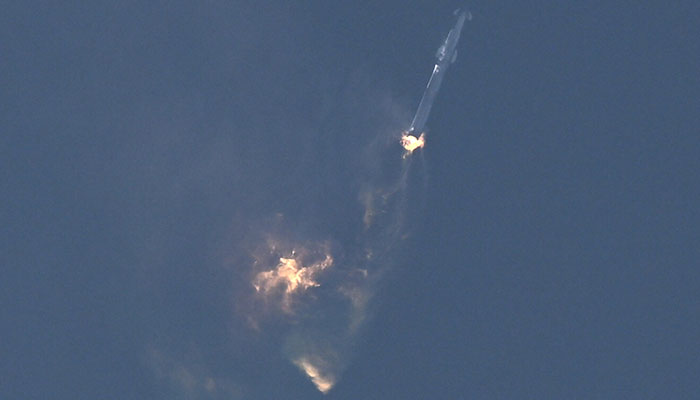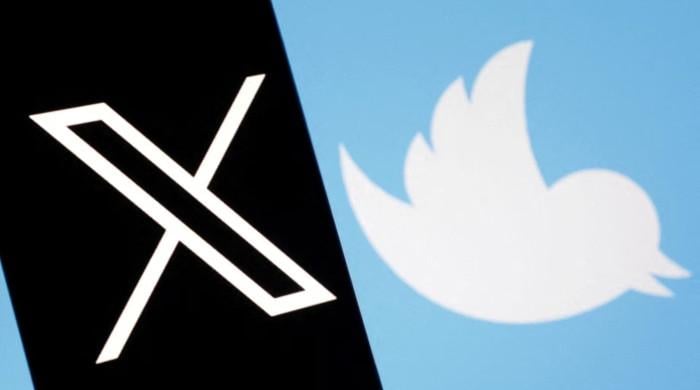Elon Musk hails SpaceX team after biggest rocket fails in first test flight
Uncrewed rocket was scheduled to separate from the first-stage booster three minutes into flight, but separation failed to occur
April 21, 2023

In a setback for SpaceX, Starship, the most powerful rocket ever built, exploded during its maiden flight on Thursday.
The uncrewed rocket was scheduled to separate from the first-stage booster three minutes into the flight, but separation failed to occur, leading to a catastrophic explosion four minutes after blast-off from the SpaceX spaceport in Boca Chica, Texas.
Despite the failure to reach orbit, SpaceX CEO Elon Musk congratulated the team on the "exciting" test of the next-generation spacecraft designed to send astronauts to the Moon, Mars and beyond.
The Starship spacecraft, consisting of a 164-foot tall crew vehicle atop a 230-foot tall first-stage Super Heavy booster rocket, had been picked by NASA to ferry astronauts to the Moon in 2025. The rocket generates 17 million pounds of thrust, more than twice that of the Saturn V rockets that propelled the Apollo astronauts to the Moon.
The integrated test flight was intended to assess the performance of both the spacecraft and the booster rocket in combination. However, the plan for the Super Heavy booster to separate from Starship after launch and splash down in the Gulf of Mexico failed, leading to a "rapid unscheduled disassembly," in SpaceX's euphemistic language, four minutes after launch.
Despite the explosion, SpaceX and Musk declared the test flight a success, stating that they had learned a tremendous amount about the vehicle and ground systems that would help them improve on future flights of Starship. Musk had warned ahead of the test that technical issues were likely, and he sought to play down expectations for the inaugural flight.
NASA chief Bill Nelson congratulated SpaceX, saying that "every great achievement throughout history has demanded some level of calculated risk, because with great risk comes great reward."
NASA will take astronauts to lunar orbit itself in November 2024 using its own heavy rocket called the Space Launch System (SLS). Starship is both bigger and more powerful than SLS and capable of lifting a payload of more than 100 metric tonnes into orbit.
SpaceX's eventual objective is to establish bases on the Moon and Mars and put humans on the "path to being a multi-planet civilization," according to Musk. The company foresees eventually putting a Starship into orbit, refueling it with another Starship so it can continue on a journey to Mars or beyond.









